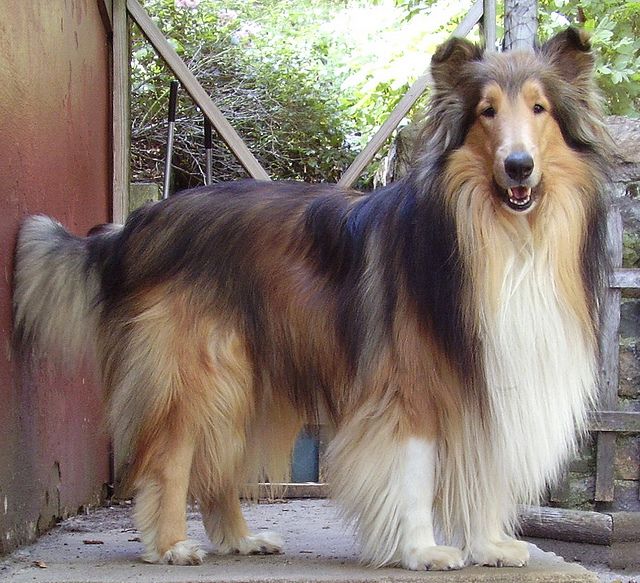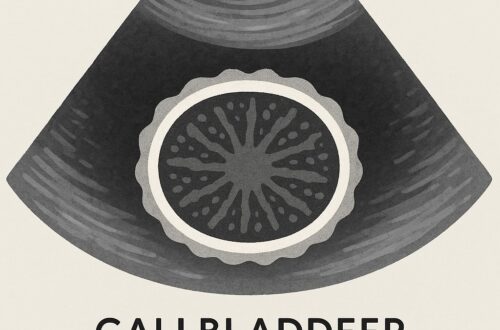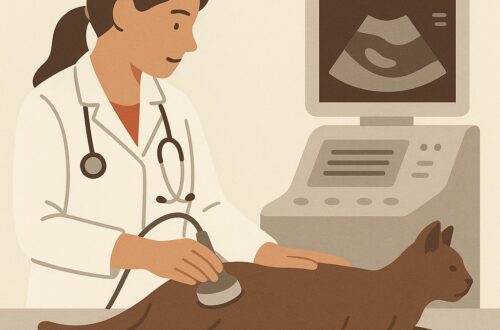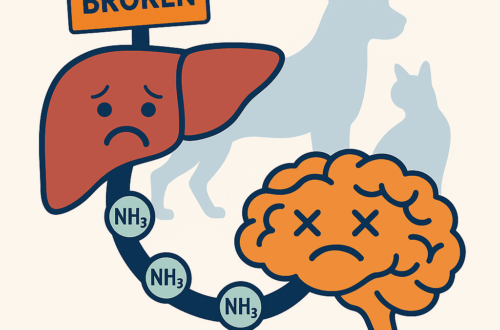Most pet parents are familiar with the terms pancreatitis and diabetes mellitus. These are two common pancreatic disorders in dogs and cats. Yet another pancreatitis disease – exocrine pancreatic insufficiency or EPI – is often overlooked as a cause of chronic weight loss and diarrhea. This week I highlight this disease to bring information about it to the forefront. Happy reading!
EPI – What is it?
The pancreas is an organ with several important functions. These vital processes are carried by the two main parts of this organ:
- Endocrine pancreas – secretes substances directly into the bloodstream
- Exocrine pancreas – secretes substances onto an epithelial surface (i.e.: cells that line body cavities, blood vessels, and organs) via ducts
The pancreas produces and secretes a variety of digestive enzymes via its exocrine components. The enzymes, also called zymogens, aid the digestion of carbohydrates, fats, and proteins. In patients with this disease, the pancreas fails to adequately secrete these important enzymes. Thus, patients are not able to digest and absorb nutrients properly. When undigested food sits in the digestive tract, bacteria overgrow and further compromise intestinal function. When more than 90% of a pet’s ability to secrete these digestive enzymes is lost, an affected pet develops chronic diarrhea (dogs > cats) and loses weight (dogs & cats) despite a normal or increased appetite (dogs > cats). In a recent survey, almost 50% of cats had decreased appetites.
EPI – What causes it?
Both dogs and cats can develop EPI. The most common cause of EPI in dogs is pancreatic acinar atrophy (PAA), and most dogs are less than six years of age when diagnosed. This condition is thought to be an immune-mediated condition that begins with a specific type of pancreatic inflammation (lymphocytic pancreatitis). With time, the enzyme producing components are damaged and replaced with non-functional cells. Some dog breeds are over-represented for PAA, including:
- German Shepherds
- Rough Coated Collies
- English Setters
- Chow chows

Other potential causes of EPI include chronic pancreatitis, pancreatic cancer, and a condition called pancreatic hypoplasia. The latter is an underdevelopment of the pancreas, and has been proposed as a cause of EPI in puppies. Chronic pancreatitis appears to be the most common cause of EPI in cats. Most cats are middle aged when diagnosed. Our feline friends often have other diseases too, including inflammatory bowel disease and hepatic lipidosis. Most dogs that develop EPI secondary chronic pancreatitis usually are concurrently living with diabetes mellitus.
EPI – How is it diagnosed?
As mentioned earlier, dogs with EPI lose weight despite a normal or increased appetite. They also have diarrhea. Feces are often yellow or gray, and bowel movements can be quite voluminous. Some families report a higher incidence of flatulence and gastrointestinal sounds (called Borborygmi) in their dogs. Cats frequently lose weight, but don’t have diarrhea and/or increased appetites like their canine counterparts.
There are quite a few causes of weight loss and chronic diarrhea in both dogs and cats. A veterinarian may perform some non-invasive blood, urine, fecal, and imaging tests to help rule out some of them. The doctor will perform a specific blood test called a serum trypsin-like immunoreactivity (TLI) to definitively diagnose EPI. The test must be performed after a pet has been fasted for 12 hours. Rarely, false-negative test results occur. Measurement of cobalamin (vitamin B12) is uniquely important, as a majority of EPI patients have low levels of this vitamin. Collaborating with a board-certified veterinary internal medicine specialist can be helpful to develop a cost-effective and logical diagnostic plan.
EPI – How is it treated?
Dogs and cats with EPI require supplementation of the digestive enzymes their pancreases can’t produce and secrete. This enzyme replacement is achieved by mixed raw or powdered forms of pancreatic enzymes with an affected pet’s food. Treatment is lifelong, but many patients ultimately need only ~50% of their original enzyme dose.
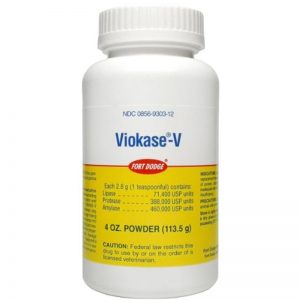
Affected pets need supplementation of vitamin B12 if blood levels are low or even low-normal. Dogs and cats do not typically need any dietary modification. With that being said, some pets have improved body condition and fecal consistency more rapidly by feeding a diet with hydrolyzed proteins and higher fiber content, respectively.
The take-away message about EPI in dogs and cats…
Exocrine pancreatic insufficiency or EPI is a pancreatic disorder characterized by inadequate production and secretion of certain digestive enzymes. Both dogs and cats often lose weight, and dogs typically have chronic diarrhea. Cats often have reduced appetites, while the appetites of dogs are normal to increased. Definitive diagnosis requires a simple blood test. Effective treatment is achieved via oral supplementation of the deficient enzymes.
To find a board-certified veterinary internal medicine specialist, please visit the American College of Veterinary Internal Medicine.
Wishing you wet-nosed kisses,
cgb


